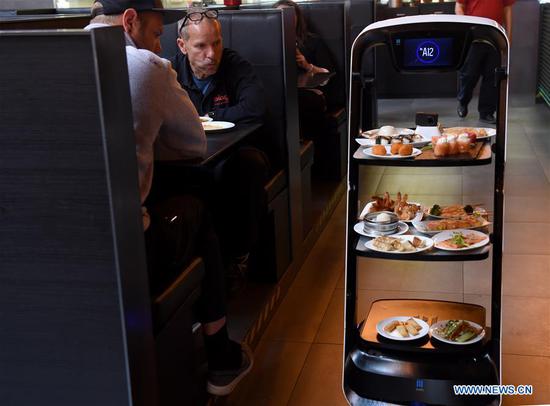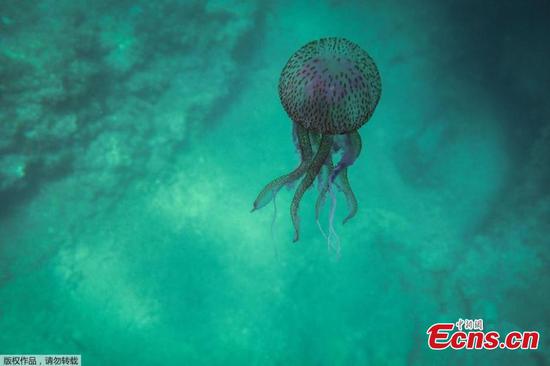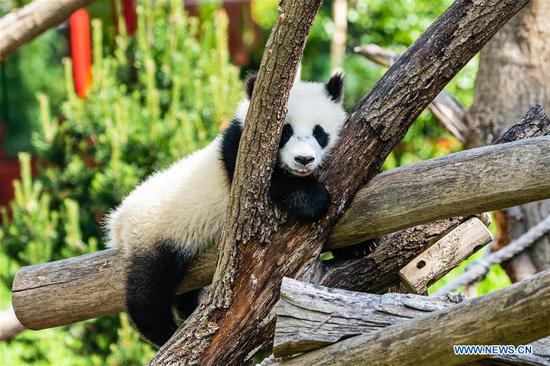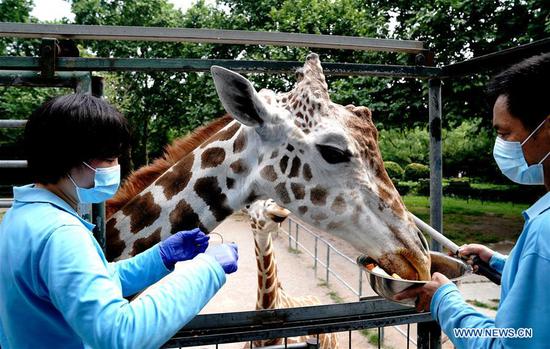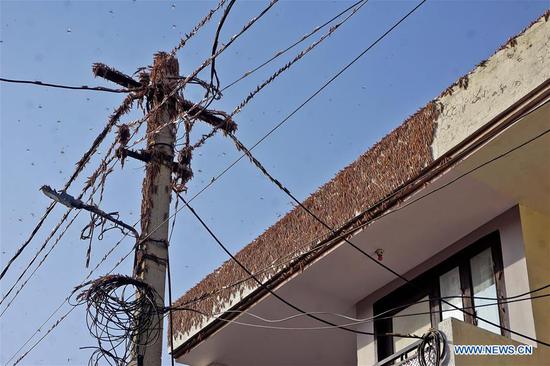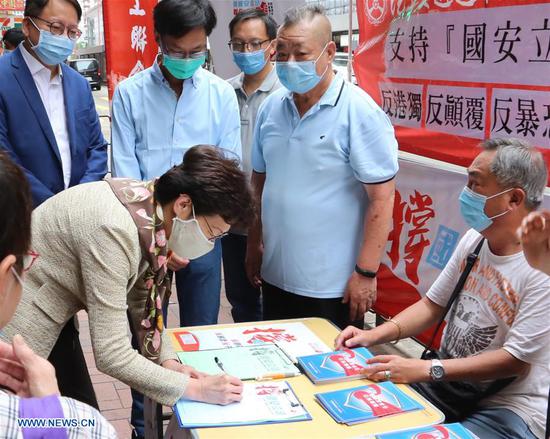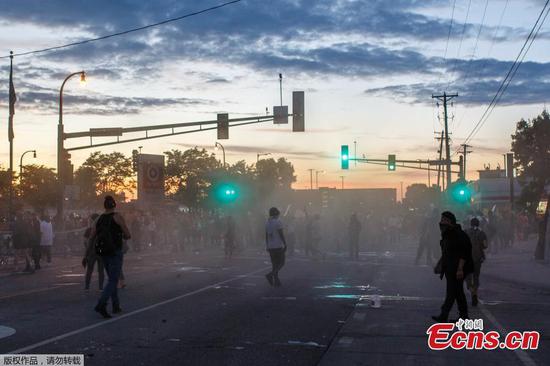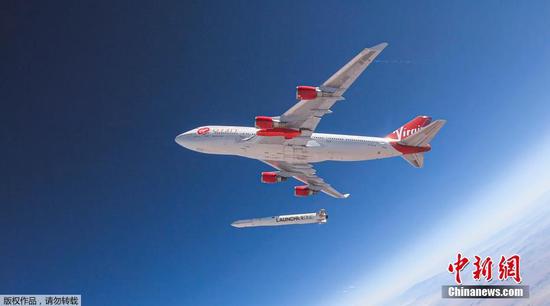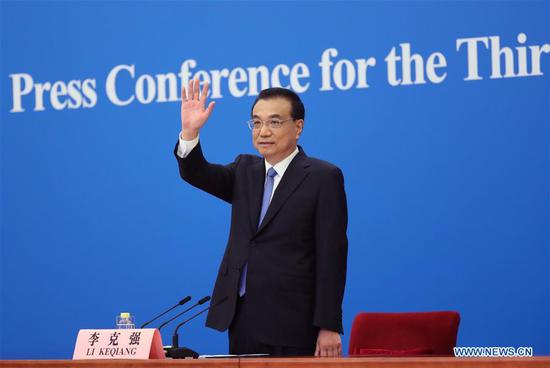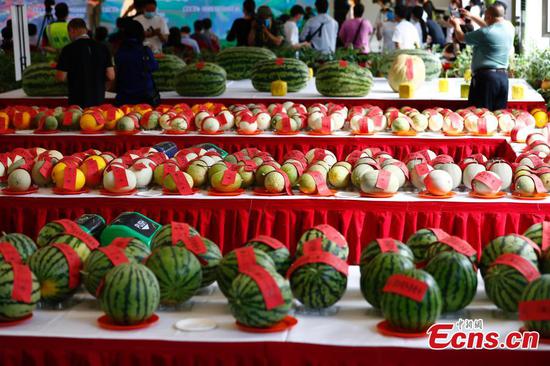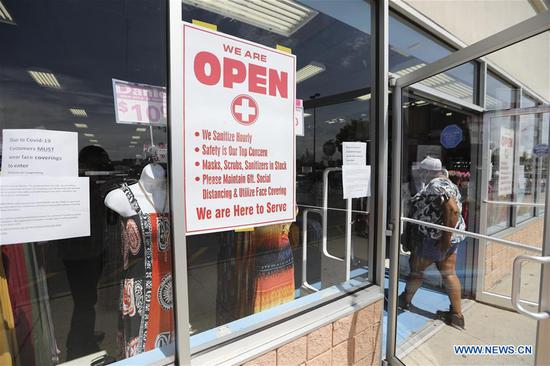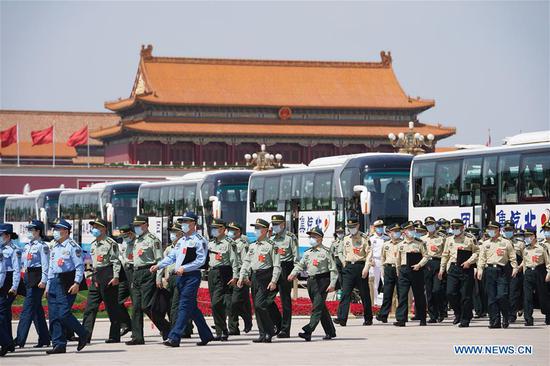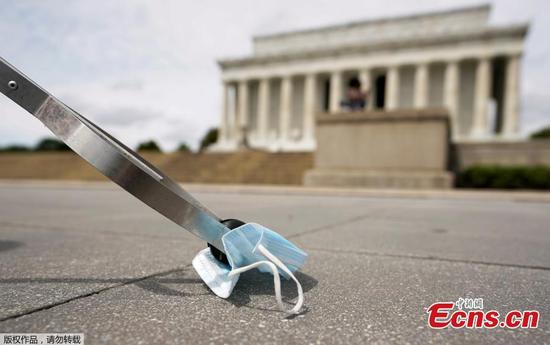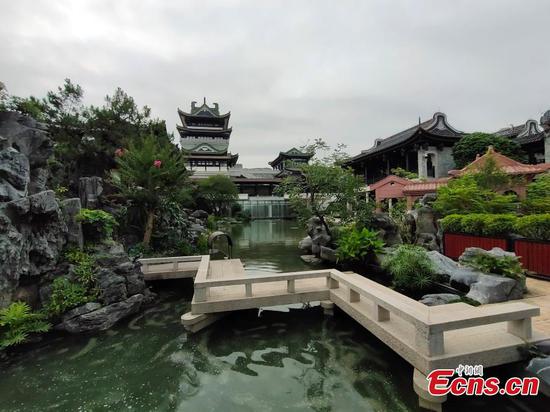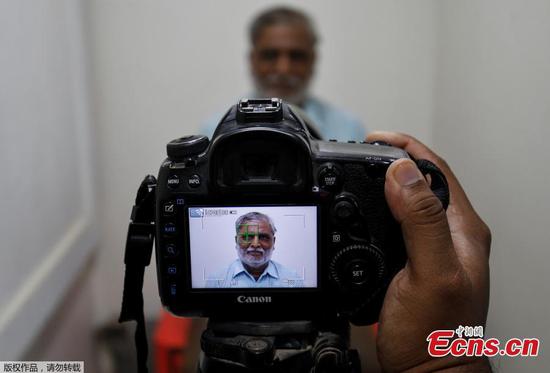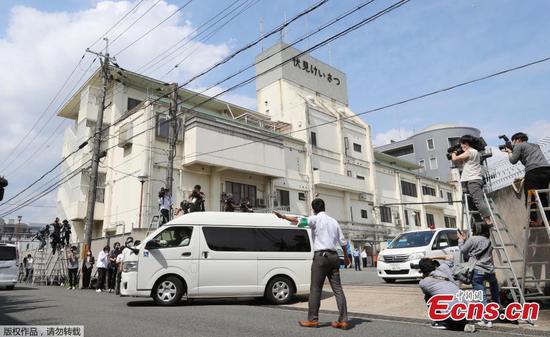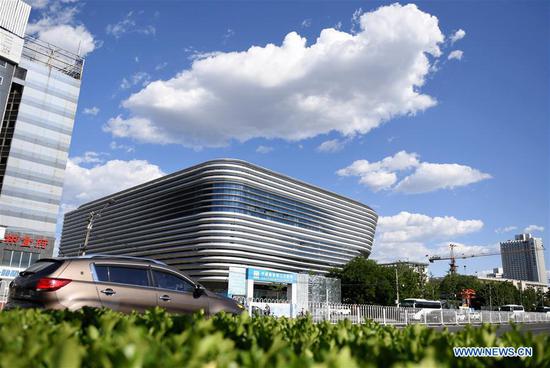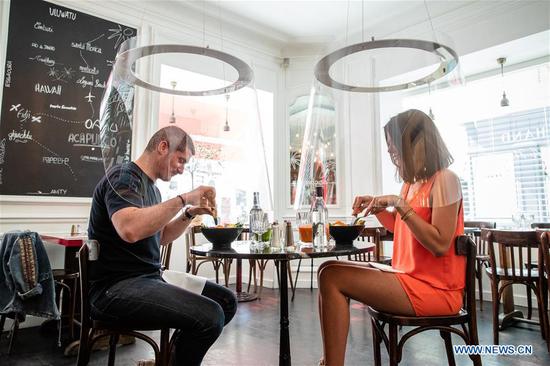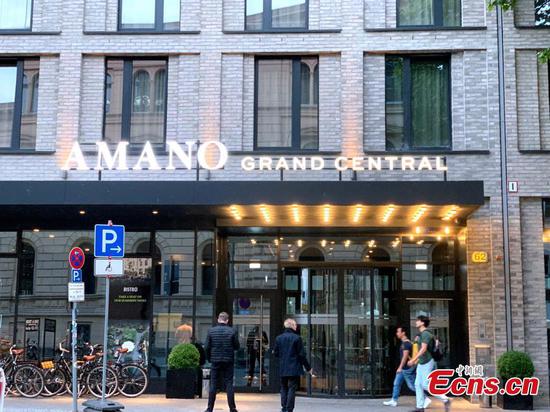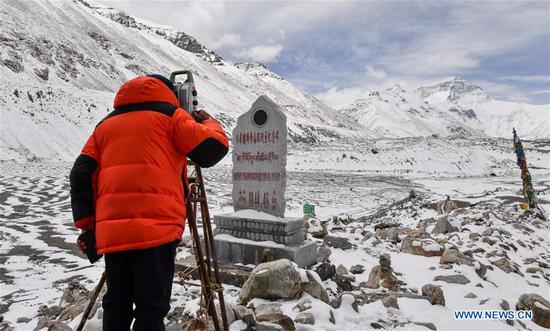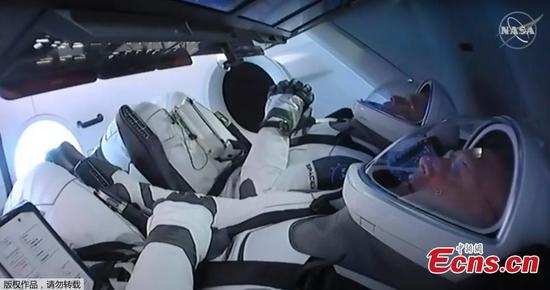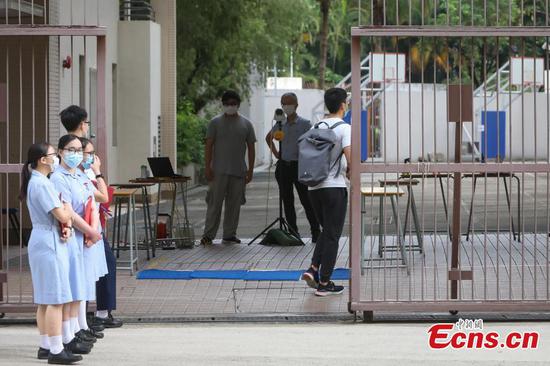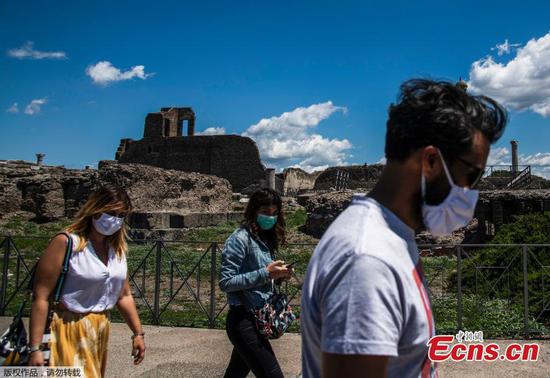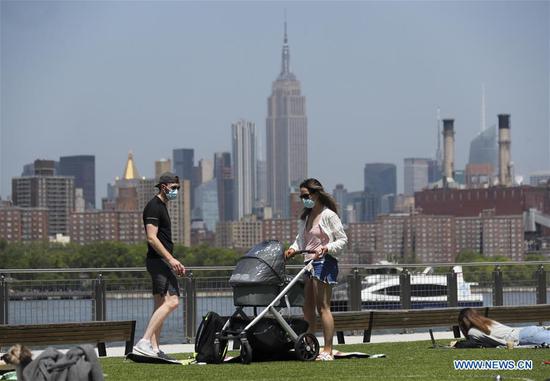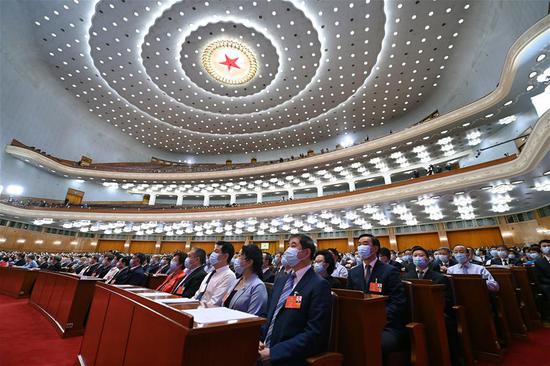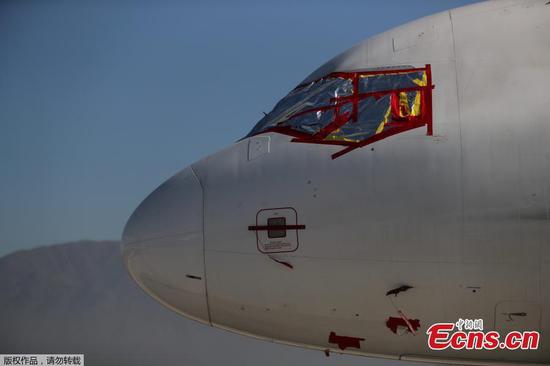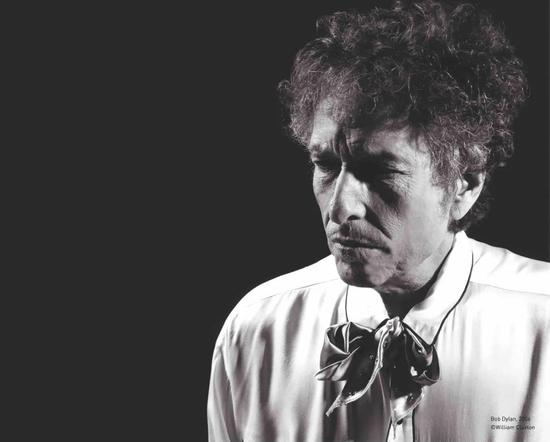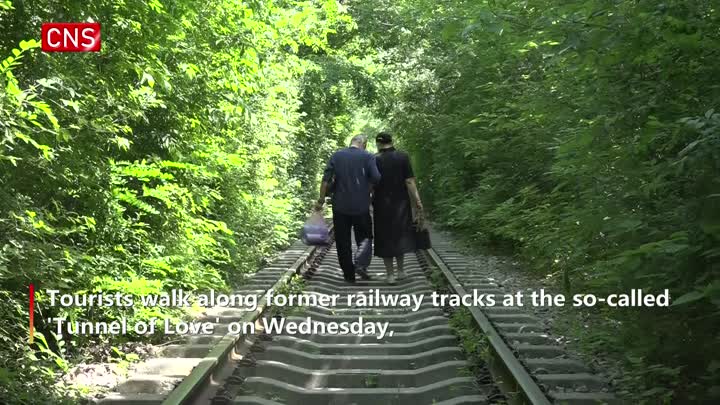
Protests continued in Hong Kong during the weekend over a proposal approved by China's top legislature the National People's Congress to enact a national security law for the city. Though Beijing says the draft and the eventual law will ensure Hong Kong's "high degree of autonomy," the decision has triggered controversy and protests have subsequently heated up.
CGTN reporter Wang Xiaonan spoke to Marvin Hung Ming-kei, CEO of Hong Kong-based Hop Hing Group and member of the National Committee of the Chinese People's Political Consultative Conference (CPPCC), about the legislation, the impact of months-long violence and the COVID-19 pandemic on Hong Kong's economy, and what's in store for the relationship between Hong Kong and the mainland.
Hung, also a senior vice chair of the Center for China and Globalization, manages the cooking oil and restaurant empire in his family business. Hung and his employees have frequently been the subjects of harassment because of his pro-establishment position.
The following are excerpts from the interview, which have been edited for clarity.
CGTN: What do you think of the national security law for Hong Kong?
Hung: There's no longer social order in Hong Kong after the proposal of the fugitive offenders ordinance early last year. The city has been through non-stop unrest since June 2019.
Many of my friends back in Hong Kong are among the much afflicted population amid the chaos. One of my friends is a police officer. His wife and children have been harassed at their doorstep many times. Students who support Beijing have been bullied at school. And we've seen numerous stores being smashed or robbed.
So the national security law comes at the right time. It's in compliance with Article 23 of the Basic Law of Hong Kong, which states that the Hong Kong Special Administrative Region shall enact laws to prohibit any act of treason, secession, sedition and subversion against the central government.
CGTN: Will the law heighten tensions between the West and China, and cause them to contain China more recklessly?
Hung: Ensuring the security of Hong Kong and the country is our bottom line. Violent protests have plunged Hong Kong into massive chaos so that local residents have to take metal sticks when they go shopping for self-defense. Almost every residential community has a self-defense team in place.
It's like we are back to the Warring States period (in ancient China).
Treason, subversive activities, stealing national intelligence… All these serve as an urgent call for a national security law.
Now the COVID-19 pandemic has cast the biggest chill over China-U.S. ties for decades. Populism has gradually become the political consensus in a host of Western countries. China has been in the eye of the storm in foreign media outlets, along with political attacks and trade restrictions. So we have no choice but to face up to the challenges.
No matter what happens, I choose to stay true to my values, to what I believe, regardless of my personal safety or business interests.
- Marvin Hung Ming-kei, CPPCC member and CEO of Hop Hing Group
CGTN: How close is Hong Kong to the mainland in the economic realm? The unfolding pandemic has shut down nations, cut off trading routes, and paralyzed companies, threatening to upend the global economy. Could the two sides cooperate in these tough times?
Hung: Hong Kong's GDP shrank by 8.9 percent over the first quarter of the year. Tourist arrivals in the city dived almost 99 percent in February and March. We are seeing a rising tide of unemployment and bankruptcy.
We are losing the status as one of the world's most open and creative financial hubs as the COVID-19 outbreak has further crippled an economy that's already riddled with wounds from months-long protests.
The mainland, which is rebooting the economy, has an economic model that has plenty of advantages. In my view, Hong Kong and the mainland can collaborate in the new retail sales, as various social media have an increasing impact on retail. Such developments as 5G can further facilitate online business.
We are encouraging the young generation of Hong Kong to start their own business on the mainland. In this way they can also learn more about the mainland's economic model, trade policies, and lifestyle.
I went to the U.S. to study at the age of 13 and came back to start my career from scratch on the mainland 10 years later. At the time, I knew nothing about the mainland and could barely speak any Chinese. Now that I made it, I have every reason to believe that Hong Kong youth can also succeed.
CGTN: When I spoke to Ms. Annie Wu Suk-ching last November to get her take on Hong Kong's violent protests, she said, "I think we have lost two entire young generations of Hong Kong." Do you still have confidence in the city's young people?
Hung:The young generation in Hong Kong has a misunderstanding of the mainland. According to my observation, Hong Kong students who've been to China to study or work temporarily usually hold a different view of China and the world from those who have never come here. We should offer more opportunities for Hong Kong youth to come to mainland cities on exchange programs, getting to know the country's history and civilization.
I will not give up hope on them. We should give them more chances to understand more about the country's culture and economic development model. I believe in the power of change.












